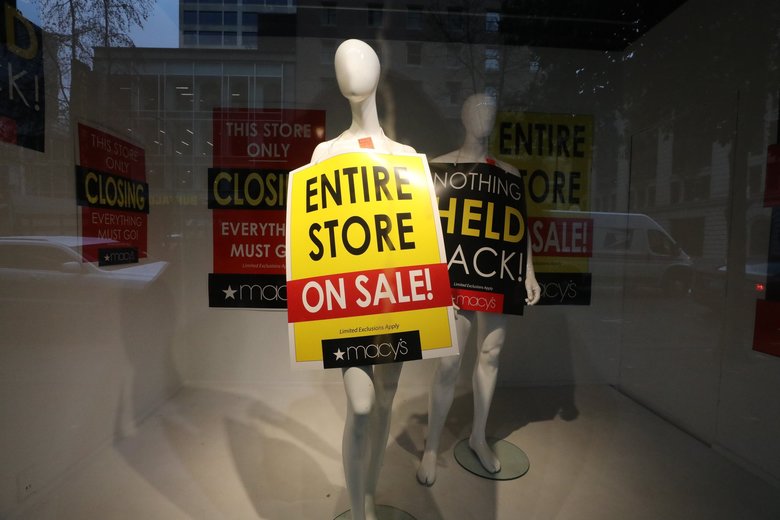Change is the New Normal
February 24, 2020

I'm a regular reader of the Wall Street Journal, and earlier this week I noticed a brief announcement relating to recent changes in the Macy’s department store organization, entitled “Macy’s Slashing Jobs and Shuttering Stores.” The article went on to detail that over the next few months Macy’s will close more than 125 department stores, end 2,000 corporate jobs and abandon its headquarter operations in Cincinnati. The Macy’s news was the most recent reminder that our economy continues to shift and adapt to the digital age. Customer behavior is changing, and the stores that were trusted brands to my generation are disappearing or are already gone: Sears, JCPenney and Montgomery Ward.
Living in a time when trusted companies go out of business makes me feel a little uneasy. And the news in education has not been much better. Over the past three years in the Northwest, Marylhurst University, Oregon College of Art and Design, and most recently Concordia University-Portland will or have already closed. It’s anticipated that Concordia’s closure alone will cause 1,500 people to lose their jobs. Just like the “trusted stores” of Sears JCPenney and Montgomery Ward, these educational institutions had long histories and served their constituents faithfully. History and mission do not guarantee continued success. It leads one to ask the question, “What makes some institutions thrive during periods of change and others fail?”
The good news about Macy’s is that several stock market prognosticators stated that, in spite of the recent closures, they were “bullish” on the future of the company! How could a company that chose to close stores and lay off employees have a positive future? The key came from a statement from the company’s CEO: “Our business is rapidly evolving in response to changes in the way customers are shopping across stores, desktops, tablets and phones. We continue to invest in our business to focus on where the customer is headed – to prepare for what is next!”
The challenge for any institution is to prepare for what’s next. If you are living in a time of intense and disruptive change, then your response has to be to pivot. In our case, we are pivoting to where we believe the educational market will be in the near future. The successful university will be the one that focuses its energies and resources on moving resources from declining areas to areas of growth that more effectively reflect future trends. In our case, we need to do this while maintaining our Christian mission. Again, Macy’s announcement furthers this idea of reallocation: “With the changes being announced, Macy’s will be increasing its workforce in some functions and locations while decreasing others so that the company can meet its consumer needs.” That’s exactly what we’re doing. And it’s why I believe George Fox will be thriving as an educational institution in the years ahead.
There’s another aspect to successful change that is vital: your reaction. Most people when they experience change see it as a threat, i.e. my environment is changing, the companies I know are going out of business, my job may disappear! It leads to feelings of fear. What will I do in this changing environment? Others see it completely different: change is opportunity. Our economic system will always need people who are skilled, thoughtful and humane professionals. Our culture vitally needs people who understand and work within a Christian worldview. Education is not going away! The opportunity is to find ways to let go of some of the past in order to lean into an education that prepares students in a Christ-centered context for a rapidly changing economy.
Thousands of years ago, God told Joshua, “Moses is dead. Therefore, the time has come for you to lead these people across the Jordan River into the land I am giving them.” Joshua faced significant change and uncertainty. It was a land occupied by other people, and one of the greatest leaders of the ancient world was dead. Was this an opportunity or a threat? Joshua saw it as opportunity and the Lord encouraged him: “Be strong and courageous! For the Lord your God is with you wherever you go.”
At George Fox, we face an uncertain future. But I see it as opportunity rather than a threat. If we move forward as Joshua did, “strong and courageous,” and look to God for guidance, I’m confident that we will continue to fulfill our mission to prepare students to pursue God’s calling for generations to come. It’s why we’re here and what our weary world desperately needs.
I remain in Christ, Robin Baker